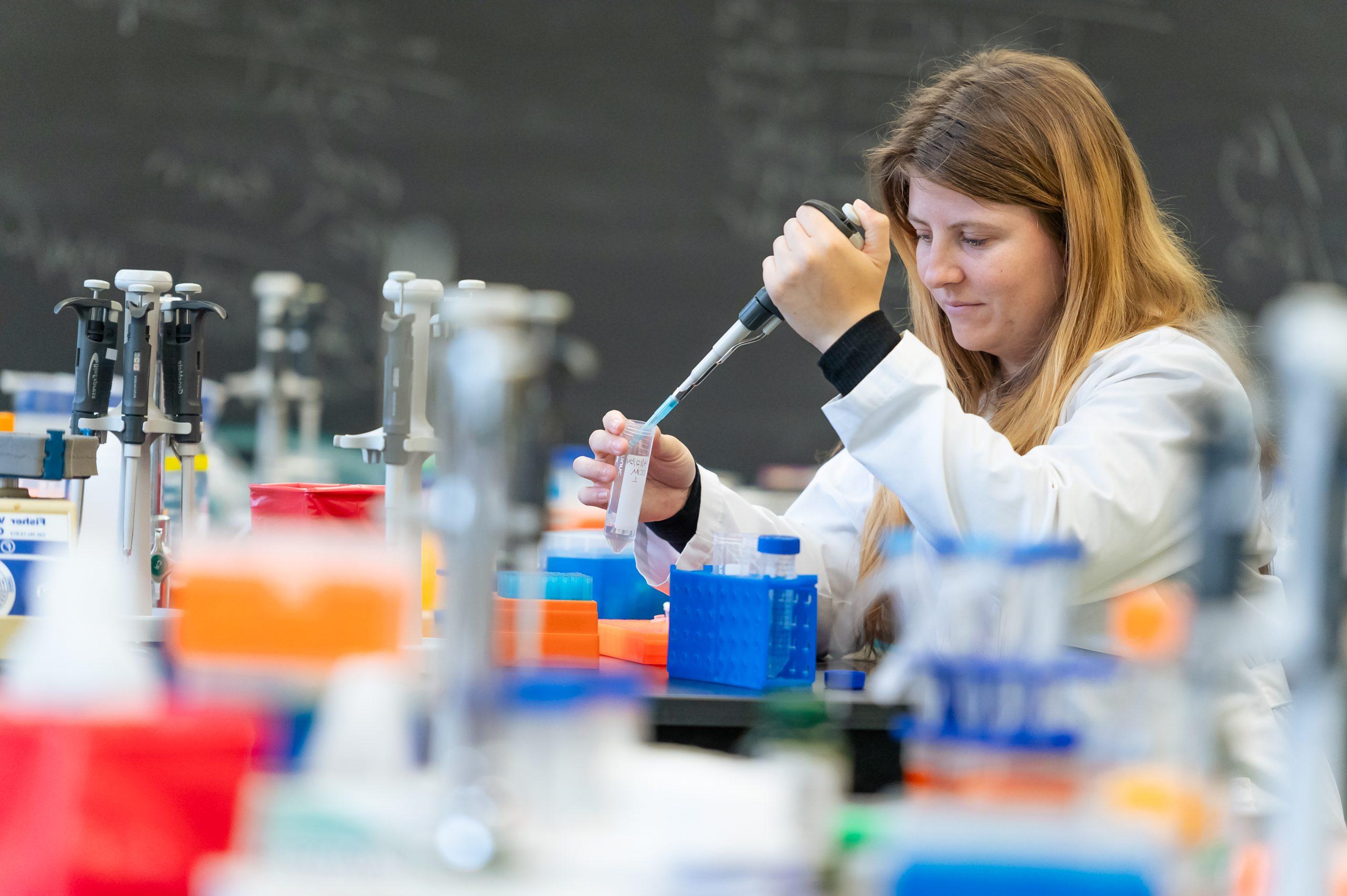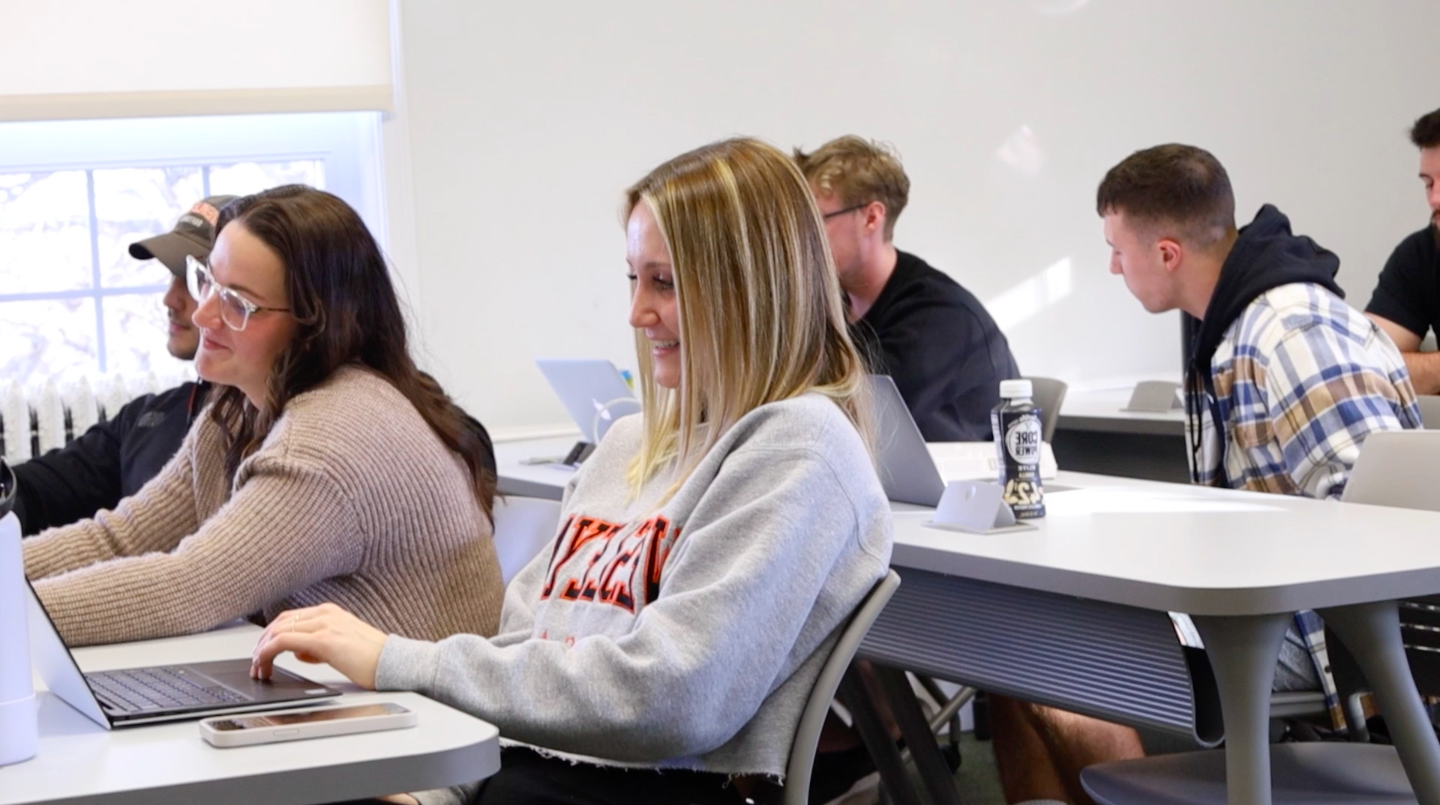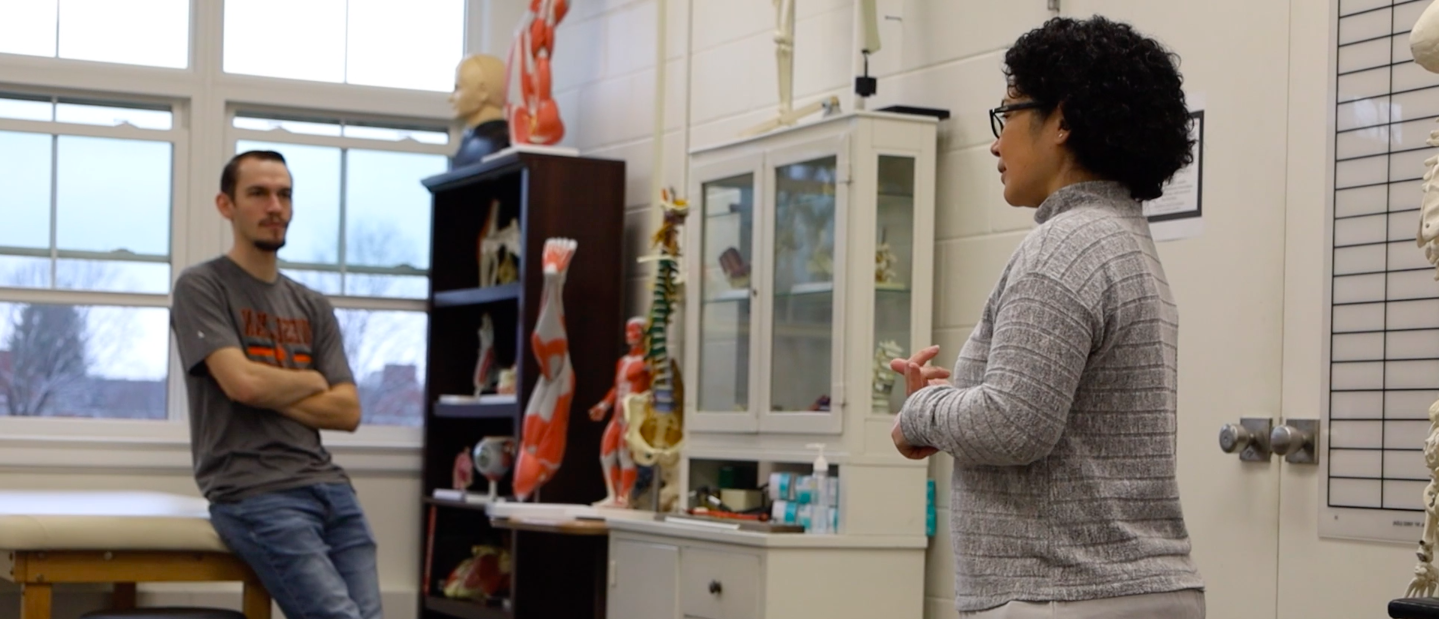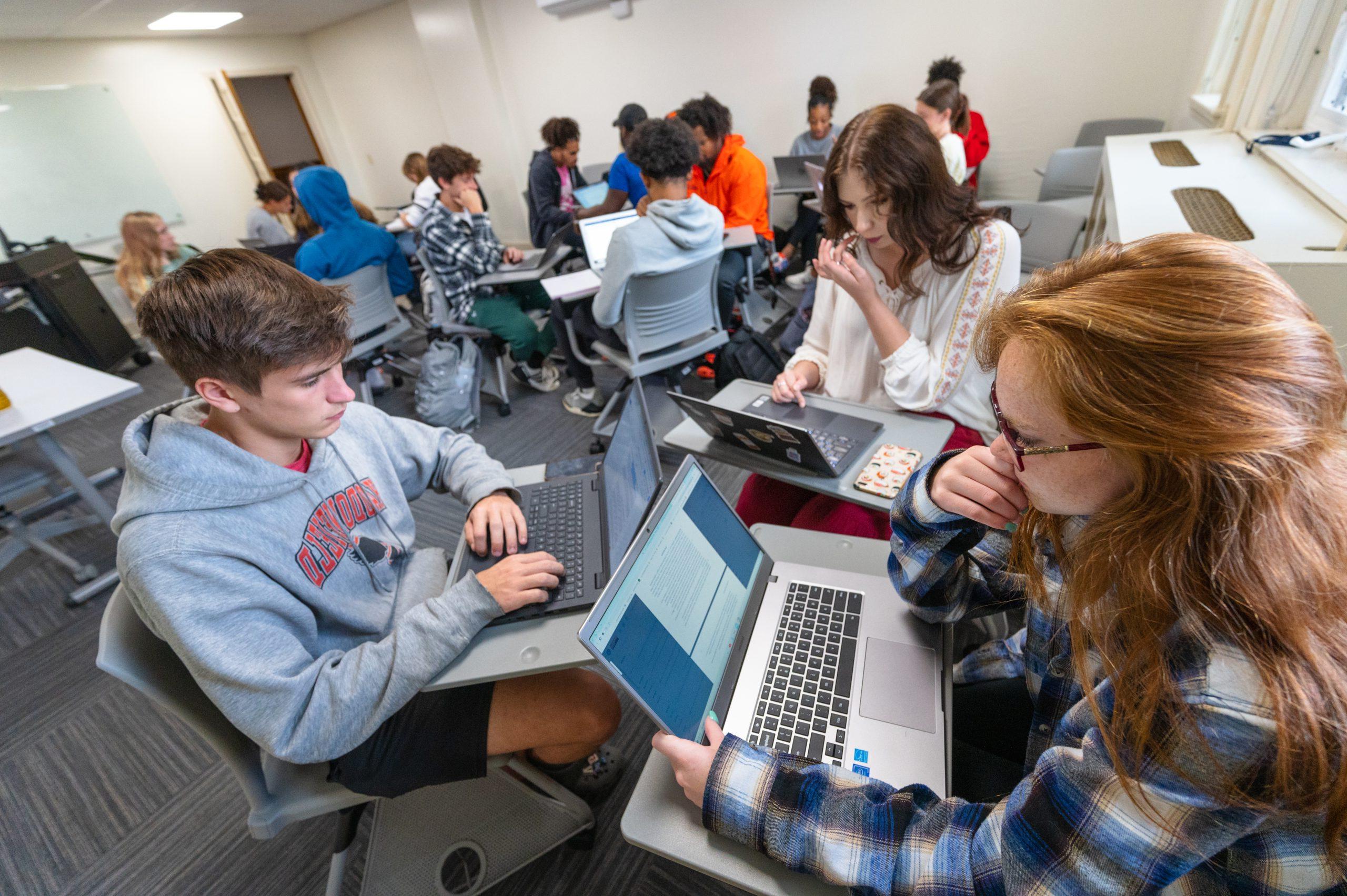Education
Colleges and Programs of Study
You will be exposed to a variety of classroom experiences, mentored by certified and talented teachers, and work with a wide range of student populations in the public schools. On campus, small interactive classes and a dedicated and accessible faculty whose priorities are teaching and advising allow students to benefit from a highly personalized educational experience.
Our education graduates are active learners and decision makers. From their first day in the classroom, teachers are prepared to lead and instruct at the level they have chosen. Moreover, our program stresses fundamental Wesleyan values: appreciation for the breadth and richness of culture, and a respect for the dignity, diversity, and worth of individuals.
West Virginia High School Students interested in the Grow Your Own Initiative can Click Here


-
Teacher Education Mission
West Virginia Wesleyan College seeks to prepare graduates who are knowledgeable of lessons from the past, aware of demands of the present, and prepared to creatively face the challenges of a changing global community. Wesleyan seeks to assist teacher candidates to identify career goals and to develop a broad background in the knowledge, skills, and dispositions necessary to become successful classroom teachers.
Upon completion of the teacher education program, candidates will be knowledgeable in all aspects of teaching and demonstrate the effective use of active learning in the classroom. Candidates will consciously make effective empirical and data based classroom decisions, reflect upon their impact, and modify instruction and practice for the future. Successful candidates will demonstrate the ability to adapt instruction to the cultural and social contexts of the school community and provide for individual differences and diversity.
Candidates must be able to design instruction and learning activities based upon contemporary research, theories, and best practice. Personal, ethical, and professional roles of teachers are identified and nurtured through coursework and experiences. Candidates must possess the personal dispositions necessary to be successful teachers – initiative, responsibility, emotional maturity, being a positive role model, a sincere concern for students, ability to collaborate with colleagues, professional commitment, and reflective evaluation of one’s own dispositions and decisions.
Content knowledge is a prerequisite for teaching. Through a comprehensive study in one’s teaching field, the development of effective teaching strategies, and the desire to exhibit recognized qualities of a professional, the candidate becomes a viable practitioner.
-
External Resources
-
Accreditation
-
Program and Professional Deadlines
-
Internal Resources
The WVWC library resources are free for WVWC Students. Products may require on campus log in or account creation on a third party site. Please take advantage of these resources. Ask a Librarian for assistance if necessary.
Praxis II Content Exams FREE Preparation
West Virginia Department of Education
Curriculum, Policy, JobBankTREE. WV Teacher Resources for Educational Excellence (TREE). The WV TREE is a one stop, grade specific site highlighting WV College- and Career-Readiness Standards and resources that are essential to the classroom teacher.
Edutopia George Lucas Foundation Free Lessons, Video, and more
Dr. Tammy Samples, Director – School of Education, Associate Professor
B.A., West Virginia University
M.Ed., Marshall University
M.Ed., Marshall University
Ed.D., West Virginia University
Area of Instruction: Education
Email: samples_t@airllevant.com
Phone: 304-473-8142
Dr. Michael Mendicino, Assistant Professor
M.S., California University of Pennsylvania
Ed.D., West Virginia University
Area of Instruction: Special Education
Email: mendicino_m@airllevant.com
Phone: 304-473-8345
Vicki Sharp, Director of Clinical Experiences
Email: sharp.v@airllevant.com
Phone: 304-473-8048
Dr. Shirley Fortney, Emeriti Faculty
Area of Instruction: Special Education
Email: fortney@airllevant.com
Phone: 304-473-8107
Dr. Karen R. Petitto, Emeriti Faculty
Area of Instruction: Technology Education
Email: petitto@airllevant.com
Dr. Lynn Rupp, Emeriti Faculty
Email: rupp_l@airllevant.com
-
Elementary Education (K-6)
Students will:
- Incorporate technology and 21st century knowledge, skills, and techniques into instructional strategies to promote higher-level student learning.
- Design and implement a variety of instructional strategies that promote learning experiences connected to students’ diversity in culture, gender, disability, linguistics, and family differences
- Synthesize and apply the various learning theories of behaviorism, cognitivism, and constructivism to facilitate the learning of diverse students.
- Apply decision-making skills to the analysis of the curriculum and modifications necessary to meet individual learner needs and comply with legal and policy requirements.
- Apply subject matter pedagogy and ability to design instructional experiences that promote creativity innovation, and problem solving.
- Demonstrate an ability to prepare and apply balanced assessment and to use assessment results to modify instruction.
- Demonstrate the knowledge, skills, and dispositions appropriate for meeting state standards and content specialization standards expected for professional teaching candidates.
-
Music Education (PreK-Adult)
Students will:
- Incorporate technology and 21st century knowledge, skills, and techniques into instructional strategies to promote higher-level student learning.
- Design and implement a variety of instructional strategies that promote learning experiences connected to students’ diversity in culture, gender, disability, linguistics, and family differences
- Synthesize and apply the various learning theories of behaviorism, cognitivism, and constructivism to facilitate the learning of diverse students.
- Apply decision-making skills to the analysis of the curriculum and modifications necessary to meet individual learner needs and comply with legal and policy requirements.
- Apply subject matter pedagogy and ability to design instructional experiences that promote creativity innovation, and problem solving.
- Demonstrate an ability to prepare and apply balanced assessment and to use assessment results to modify instruction.
- Demonstrate the knowledge, skills, and dispositions appropriate for meeting state standards and content specialization standards expected for professional teaching candidates.
-
English Education (5-Adult)
Students will:
- Incorporate technology and 21st century knowledge, skills, and techniques into instructional strategies to promote higher-level student learning.
- Design and implement a variety of instructional strategies that promote learning experiences connected to students’ diversity in culture, gender, disability, linguistics, and family differences
- Synthesize and apply the various learning theories of behaviorism, cognitivism, and constructivism to facilitate the learning of diverse students.
- Apply decision-making skills to the analysis of the curriculum and modifications necessary to meet individual learner needs and comply with legal and policy requirements.
- Apply subject matter pedagogy and ability to design instructional experiences that promote creativity innovation, and problem solving.
- Demonstrate an ability to prepare and apply balanced assessment and to use assessment results to modify instruction.
- Demonstrate the knowledge, skills, and dispositions appropriate for meeting state standards and content specialization standards expected for professional teaching candidates.
-
Math Education (5-Adult)
Students will:
- Incorporate technology and 21st century knowledge, skills, and techniques into instructional strategies to promote higher-level student learning.
- Design and implement a variety of instructional strategies that promote learning experiences connected to students’ diversity in culture, gender, disability, linguistics, and family differences
- Synthesize and apply the various learning theories of behaviorism, cognitivism, and constructivism to facilitate the learning of diverse students.
- Apply decision-making skills to the analysis of the curriculum and modifications necessary to meet individual learner needs and comply with legal and policy requirements.
- Apply subject matter pedagogy and ability to design instructional experiences that promote creativity innovation, and problem solving.
- Demonstrate an ability to prepare and apply balanced assessment and to use assessment results to modify instruction.
- Demonstrate the knowledge, skills, and dispositions appropriate for meeting state standards and content specialization standards expected for professional teaching candidates.
-
Social Studies Education (5-Adult)
Students will:
- Incorporate technology and 21st century knowledge, skills, and techniques into instructional strategies to promote higher-level student learning.
- Design and implement a variety of instructional strategies that promote learning experiences connected to students’ diversity in culture, gender, disability, linguistics, and family differences
- Synthesize and apply the various learning theories of behaviorism, cognitivism, and constructivism to facilitate the learning of diverse students.
- Apply decision-making skills to the analysis of the curriculum and modifications necessary to meet individual learner needs and comply with legal and policy requirements.
- Apply subject matter pedagogy and ability to design instructional experiences that promote creativity innovation, and problem solving.
- Demonstrate an ability to prepare and apply balanced assessment and to use assessment results to modify instruction.
- Demonstrate the knowledge, skills, and dispositions appropriate for meeting state standards and content specialization standards expected for professional teaching candidates.
-
Special Education (Multicategorical K-12)
Students will:
- Incorporate technology and 21st century knowledge, skills, and techniques into instructional strategies to promote higher-level student learning.
- Design and implement a variety of instructional strategies that promote learning experiences connected to students’ diversity in culture, gender, disability, linguistics, and family differences
- Synthesize and apply the various learning theories of behaviorism, cognitivism, and constructivism to facilitate the learning of diverse students.
- Apply decision-making skills to the analysis of the curriculum and modifications necessary to meet individual learner needs and comply with legal and policy requirements.
- Apply subject matter pedagogy and ability to design instructional experiences that promote creativity innovation, and problem solving.
- Demonstrate an ability to prepare and apply balanced assessment and to use assessment results to modify instruction.
- Demonstrate the knowledge, skills, and dispositions appropriate for meeting state standards and content specialization standards expected for professional teaching candidates.
Programs of Study
-
Art and Design

-
Biology & Environmental Science

-
Business

-
Chemistry & Biochemistry

-
Communication & Media

-
Education

-
English

-
Exercise Science & Athletic Training

-
Health Sciences

-
History and International Studies

-
Mathematics & Computer Science

-
Music

-
Nursing

-
Philosophy and Religious Studies

-
Physics & Engineering

-
Psychology

-
Social Sciences

-
Theatre and Dance Department


